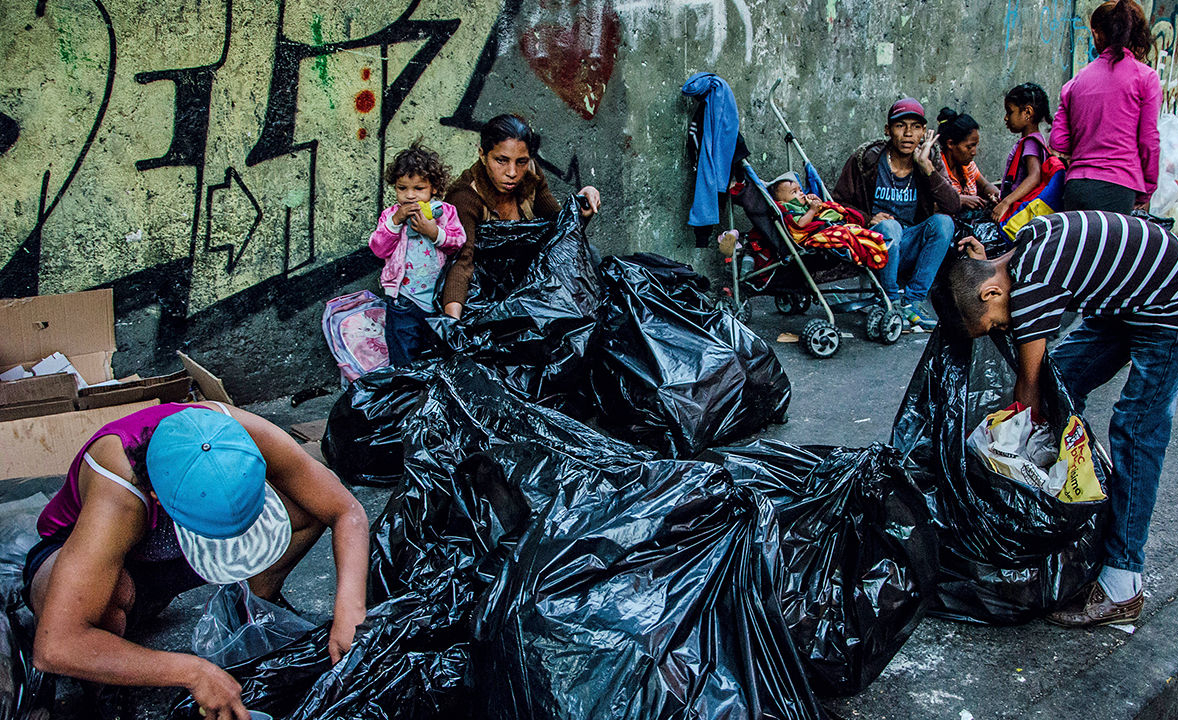The United States has vehemently denied allegations from Venezuela that the CIA orchestrated an assassination plot against President Nicolás Maduro and other officials. Venezuelan Interior Minister Diosdado Cabello announced the arrest of three U.S. citizens, two Spaniards, and one Czech national, labeling them as "mercenaries" involved in a scheme to destabilize the country. Cabello claimed that these individuals were connected to "French mercenaries" and were plotting terrorist acts, with over 400 rifles reportedly seized during the operation.
 Credit: Common Dreams - Matthew Miller, Spokesman for the U.S. Department of State
Credit: Common Dreams - Matthew Miller, Spokesman for the U.S. Department of State
In response, the U.S. State Department called the claims "categorically false," emphasizing that the alleged conspirators had no connection to the CIA and denied any U.S. attempts to assassinate Maduro. They did confirm the detention of a U.S. military member and acknowledged unverified reports of further detentions. Meanwhile, the Spanish government rejected any insinuations of involvement in a political destabilization plot, asserting that the detained Spaniards were not associated with its National Intelligence Centre (CIN). The Czech Republic has not yet commented on the situation.
Background
 Credit: - Former President of Venezuela Hugo Chávez
Credit: - Former President of Venezuela Hugo Chávez
The Chávez Era (1999 - 2013)
Hugo Chávez, who became president of Venezuela in 1999, established a socialist government that nationalized key industries, particularly oil, using the resulting revenues to support various social programs. His administration frequently criticized U.S. foreign policy, especially its interventions in Latin America. Simultaneously, Chávez sought closer ties with other leftist governments in the region, such as Cuba. He often accused the U.S. of attempting to undermine his administration, notably blaming Washington for a failed coup attempt in 2002. This animosity was reflected in his strong anti-American rhetoric; during a 2006 speech at the United Nations, he famously referred to George W. Bush as “El Diablo” (The Devil), symbolizing U.S. aggression and imperialism. Consequently, relations between Venezuela and the U.S. soured significantly during this period. Chávez portrayed the U.S. as a threat to Venezuela's sovereignty, while the U.S. depicted Chávez as an authoritarian dictator guilty of major human rights violations.
 Credit: Al Jazeera - Nicolás Maduro
Credit: Al Jazeera - Nicolás Maduro
The Maduro Era (2013 - Present)
Following Chávez's death in 2013, Nicolás Maduro became president of Venezuela. Initially, Maduro sought to uphold Chávez's socialist policies and anti-American rhetoric, but he soon encountered significant challenges, including economic collapse, hyperinflation, and widespread social unrest. In response to human rights abuses, election irregularities, and corruption, the U.S. imposed sanctions on Maduro and his inner circle.
In 2018, Maduro was re-elected in a vote that was widely condemned as fraudulent by the U.S. and other nations. By January 2019, the U.S. had recognized opposition leader Juan Guaidó as the legitimate president of Venezuela. The Trump administration responded to the suspected election fraud by intensifying sanctions that targeted Venezuela's oil exports, exacerbating the country's economic struggles.
 Credit: Getty Images - U.S. President Joe Biden
Credit: Getty Images - U.S. President Joe Biden
Recent Developments
The Biden administration began easing sanctions on Venezuelan oil in late 2022. This shift aimed to encourage the Venezuelan government to engage in negotiations for free and fair elections and to address the ongoing humanitarian crisis. The easing of sanctions was part of a broader strategy to promote dialogue between the Venezuelan government and the opposition while also responding to rising global oil prices and the impact of sanctions on the U.S. energy market.
Since the controversial 2024 Venezuelan presidential elections, relations between the U.S. and Venezuela have become increasingly turbulent. Although the U.S. initially recognized opposition leader Edmundo González as the legitimate president, it has since reversed this position. Nevertheless, the U.S. continues to reject Nicolás Maduro's declared victory, which has faced widespread skepticism both domestically and internationally. Following the election, González fled to Spain seeking asylum, signaling a setback for the opposition and reinforcing Maduro's grip on power.
In response to the fraudulent election, the U.S. imposed visa restrictions and sanctions on Maduro-aligned officials accused of undermining democracy and violating human rights. While these actions aim to support democratic processes, they have drawn criticism for their perceived ineffectiveness, as Maduro remains in power and conditions for opposition figures have not improved.
Conclusion
Given the past failures of economic incentives and strong sanctions, the U.S. must explore alternative strategies to address the complex situation in Venezuela. Enhancing multilateral pressure through coordinated sanctions with international partners, increasing humanitarian aid to alleviate suffering, and supporting grassroots movements for democracy and human rights within the country are essential steps. By adopting a multifaceted approach that prioritizes the needs of the Venezuelan people, the U.S. can contribute to a more stable and democratic future for Venezuela and promote regional stability in Latin America.
 Credit: AP News - Nicolas Maduro Giving a Speech
Credit: AP News - Nicolas Maduro Giving a Speech

